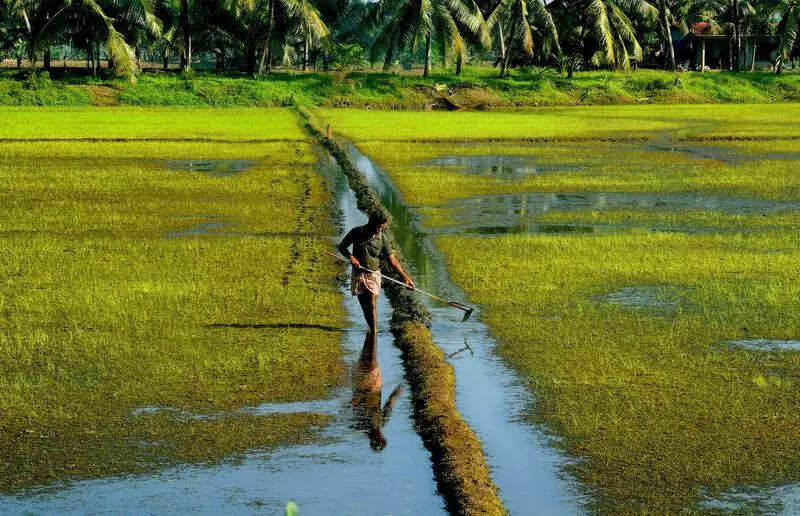India’s first genome-edited rice variety developed in Hyd | Hyderabad News

The official announcement was made by Union agriculture minister Shivraj Singh Chauhan, recognising two genome-edited rice lines—DRR Dhan 100 (Kamala) and Pusa DST1—the latter developed by ICAR–Indian Agricultural Research Institute in New Delhi.
What sets the Hyderabad-developed variety apart is its foundation in non-transgenic genome editing. Unlike genetically modified (GM) crops, which involve the insertion of foreign genes, DRR Dhan 100 (Kamala) was developed using CRISPR-Cas mediated genome editing under India’s regulatory framework for New Breeding Technologies (NBTs). This technology enables precise improvements within the plant’s own DNA.
Developed in the genetic background of the widely grown Samba Mahsuri, DRR Dhan 100 (Kamala) is the result of research led by Dr Satendra Kumar Mangrauthia and his team in Rajendranagar in the city. Scientists used targeted editing of the cytokinin oxidase/dehydrogenase gene to alter cytokinin metabolism. This modification boosted reproductive development and increased the number of grains per panicle.
According to multi-location field trials conducted across India, the variety showed an average 19% yield advantage over Samba Mahsuri. It also demonstrated early maturity — a valuable trait for rain-fed and rotation-based agriculture — and stronger culms, providing better resistance to lodging under intensive cultivation.
Speaking to TOI, Dr Mangrauthia said, “It took nearly three years to develop this, including two years of multi-location field trials. We now have nucleus seeds and are awaiting the gazette notification for the release of seeds. Importantly, this is not a GM crop. In 2022, the govt of India clearly defined that genome editing without foreign DNA is not genetic modification.”
Dr. Mangrauthia noted that the variety showed consistent performance even under low nitrogen and phosphorus inputs. “It also has moderate drought tolerance and a more robust root system, which makes it viable for resource-poor and climate-stressed environments,” he said.
He clarified that genome editing involves “targeted correction” of traits that hinder performance in otherwise high-performing varieties like Samba Mahsuri, originally from Andhra Pradesh and Telangana.
The release sparked pushback from an umbrella organisation called Coalition for a GM-Free India, which demanded the immediate withdrawal of both genome-edited varieties—Kamala and Pusa DST1. The group urged the govt to bring genome editing under stricter regulatory oversight.
In a statement, they warned: “The two genome-edited rice varieties have the potential to harm humans and cause irreversible damage to the environment, in addition to threatening our seed sovereignty.”
















